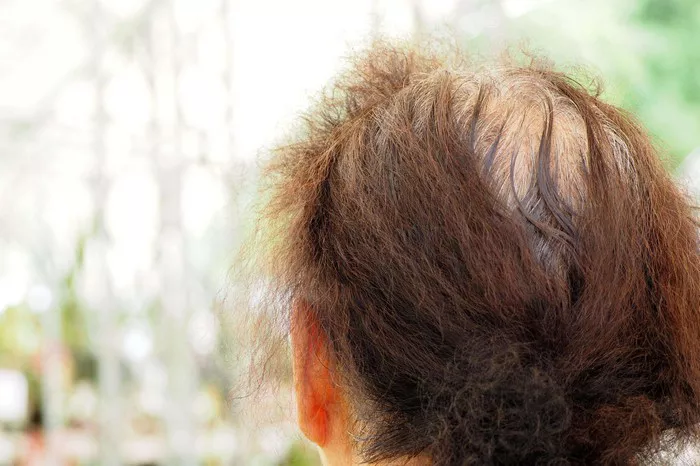Castor oil has long been hailed as a natural remedy for various hair concerns, with enthusiasts praising its potential to promote hair growth and thickness. However, some individuals may find themselves questioning its efficacy as they experience unexpected hair loss. In this comprehensive guide, we’ll explore the potential reasons behind the paradox of castor oil causing hair loss and shed light on the factors that may contribute to this unexpected outcome.
The Castor Oil Conundrum:
Castor oil is derived from the seeds of the castor bean plant and is rich in nutrients such as ricinoleic acid, which is believed to have anti-inflammatory and antimicrobial properties. Many turn to castor oil as a home remedy to address hair loss issues and to nourish the scalp. However, the experience of hair loss despite these purported benefits raises concerns and prompts a closer examination.
Potential Allergic Reactions:
One explanation for hair loss after using castor oil could be an allergic reaction. While castor oil is generally considered safe, some individuals may have an allergic sensitivity to it. Allergic reactions can manifest as redness, itching, or inflammation on the scalp, leading to hair loss in severe cases. Before using castor oil extensively, it’s advisable to perform a patch test on a small area of the skin to check for any adverse reactions.
Overapplication and Scalp Buildup:
More is not always better, and this holds true for the application of castor oil. Using an excessive amount of oil or applying it too frequently can lead to scalp buildup. A congested scalp may impede the natural shedding of hair and obstruct hair follicles, potentially resulting in hair loss. Moderation is key when incorporating castor oil into your hair care routine.
Failure to Penetrate the Hair Shaft:
Castor oil is a thick and viscous oil, and its molecular structure may make it challenging to penetrate the hair shaft effectively. When applied to the hair’s surface without proper penetration, it can create a coating that makes the hair feel heavy and limp. In some cases, this can contribute to the appearance of thinning hair, leading to the misconception of hair loss.
Individual Variation in Responses:
Every individual’s hair and scalp react differently to various products and treatments. What works wonders for one person may not yield the same results for another. Some individuals may have a unique sensitivity to castor oil or may simply not respond positively to its properties. It’s essential to be attuned to your hair’s specific needs and adjust your hair care routine accordingly.
Quality of Castor Oil Matters:
The quality of the castor oil used can significantly impact its effectiveness and its potential to cause adverse reactions. Opt for cold-pressed, hexane-free, and organic castor oil to ensure you are using a high-quality product. Some commercially available castor oils may contain additives or impurities that could contribute to scalp irritation or hair loss.
Underlying Scalp Conditions:
Certain scalp conditions, such as dermatitis or psoriasis, can lead to hair loss. While castor oil may have potential benefits, it might not be the optimal solution for individuals dealing with these underlying scalp issues. Consulting with a dermatologist or healthcare professional can help identify any existing conditions and determine the most suitable course of action for hair care.
Inadequate Cleansing:
Proper cleansing is crucial when using any oil on the hair and scalp. Failing to cleanse the hair thoroughly after applying castor oil can result in product buildup, which may weigh down the hair and contribute to a limp and lackluster appearance. Ensure you are using a gentle and effective shampoo to remove any residue and maintain a healthy scalp environment.
Overlapping with Other Hair Care Products:
The combination of castor oil with other hair care products may contribute to unexpected outcomes. Some individuals use multiple products simultaneously, and the interaction of these products may not always be favorable. It’s advisable to simplify your hair care routine and introduce products gradually to identify any potential interactions that could be causing hair loss.
See Also: 10 Things We Can Do To Stop Hair Loss: A Complete Guide
Conclusion:
While castor oil is celebrated for its potential benefits in promoting hair health, it is crucial to approach its use with caution and mindfulness. Allergic reactions, overapplication, the inability to penetrate the hair shaft, and individual variations in responses are among the factors that may contribute to the paradox of castor oil causing hair loss. By understanding these potential issues and tailoring the use of castor oil to individual needs, one can maximize its benefits while minimizing the risk of adverse effects. If hair loss persists or worsens, seeking advice from a healthcare professional or dermatologist is recommended for a personalized and informed approach to addressing hair concerns.


